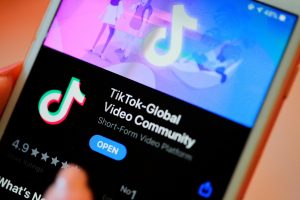Vietnam’s government is preparing to make it mandatory for users of Facebook, TikTok, and other social media networks to verify their identities, citing the need to combat online scams and other forms of cybercrime.
In a report published on its website on Monday, the Ministry of Information’s Authority of Broadcasting and Electronic Information stated that an amendment will be made to the Telecommunications Law later this year, making it mandatory for the aforementioned platforms to require individuals and groups to confirm their identities when registering an account.
“There are times the authorities can identify social media account holders that violate the laws but cannot track them down because those criminals use cross-border applications,” state media quoted Deputy Information Minister Nguyen Thanh Lam as saying, according to Reuters. “Unverified accounts, no matter on local or foreign platforms such as Facebook, TikTok, YouTube, will be dealt with.”
As with many cybsersecurity measures, the legitimate rationale of combating criminal activity – Vietnam has one of the highest rates of online fraud in Asia, according to the Global Anti Scam Alliance – is hard to disentangle from more political goals. The measure will effectively strip social media users of the anonymity behind which they can safely disseminate criticisms of the ruling Communist Party of Vietnam (CPV). After all, in Vietnam “criminal activities” also include the production and spreading of “anti-state propaganda” – a broad category that outlaws even fairly mundane criticisms of CPV rule.
Indeed, in recent years the Vietnamese government has prosecuted an increasing number of social media users and dissidents for speech posted online.
In many ways it is no surprise. Vietnam has one of the largest national social media user bases in the world, with the seventh-largest population of Facebook users and sixth-largest on TikTok. As reformers, dissidents, human rights defenders, and other free-thinkers take up these tools as a means of communication and potential political mobilization, the CPV authorities are taking steps to keep them under control.
This crackdown has been furthered by the erection of a legal framework designed to bring major foreign tech firms under firm state control, and regulate strictly the flow of information online. In 2018, it passed a cybersecurity law that forces Facebook and Google to take down posts deemed to be threats to national security within 24 hours of receiving a government requests – and it It has also forced foreign tech firms to establish representative offices in Vietnam and store users’ data locally and is preparing new rules to limit which social media accounts can post news-related content.
In recent months, the CPV authorities have taken specific aim at the Chinese social media app TikTok, which is massively popular among the young and is even beginning to challenge Facebook as the country’s preferred social media network. Last month, Vietnam’s Ministry of Information announced that it was launching a “comprehensive” probe into the short video platform, arguing that “toxic, offensive, false, and superstitious” content on the network “poses a threat to the country’s youth, culture, and tradition.” According to Vietnamese media reports, the investigation, which will be conducted in the second half of May, will cover issues including content distribution, taxation, e-commerce, and advertising on the platform. The fact that it is owned by a Chinese firm has likely contributed to this push.
All told, the removal of anonymity will mark a further setback to online freedom of speech in Vietnam, creating a situation in while any online communication can theoretically be monitored by the party-state. The might prevent the spread of scams and other nefarious online activities – but at a cost.

































